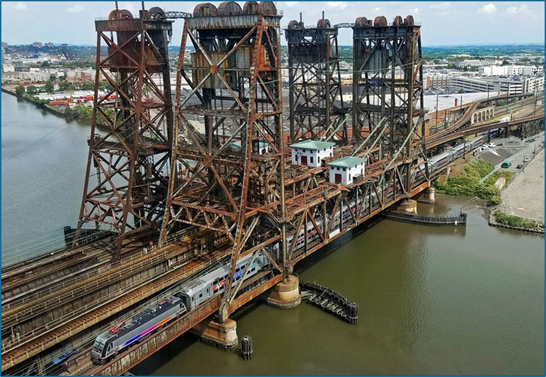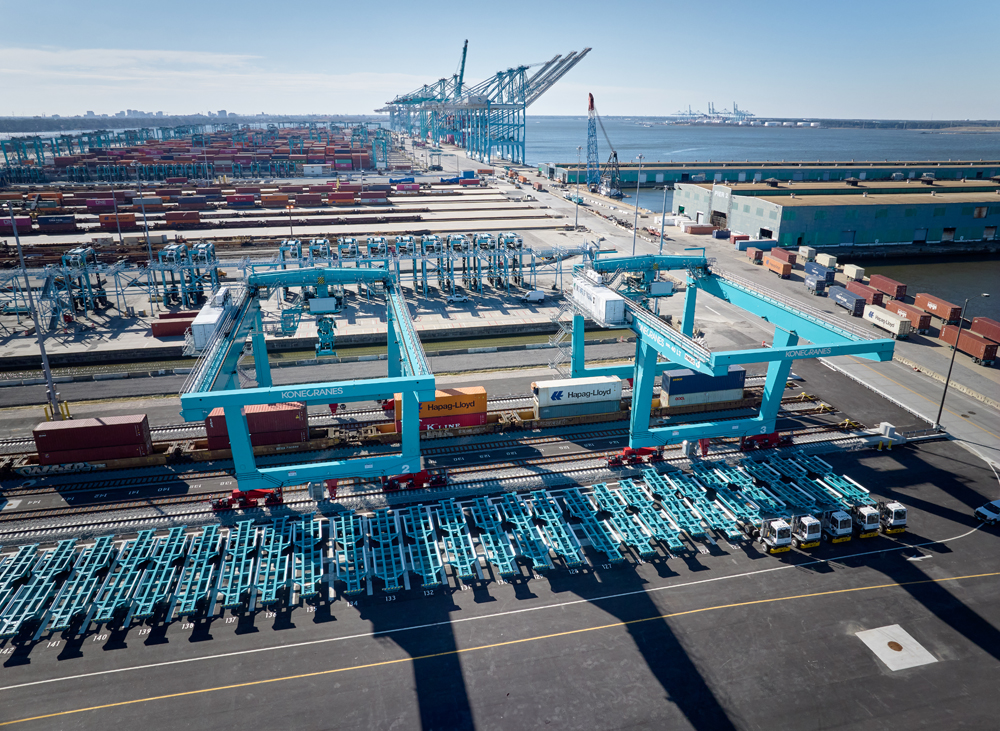Intermodal, which makes up more than 50 percent of Hunt revenues, had a difficult first half of 2019, due to PSR-driven lane closures in the East and by weather and flooding problems in the West and Midwest.
Hunt intermodal volume was off by 8 percent in the second quarter of 2019, according to the company’s latest earnings statement.
“We were disappointed with the load counts for the quarter,“ says David G. Mee, chief financial officer. But Mee says some of the drop was due to seasonal demand and that average loads per workday increased through the quarter (7,800 in June compared to 7,300 in April), and that he was optimistic about intermodal volume for the remainder of 2019.
In “a weak freight environment” Mee says eastern intermodal lane closures dropped Hunt intermodal volume but the company was prepared for the drop.
Terry Matthews, president of intermodal services, says that in the wake of PSR, service on Eastern railroads has improved.
“The service levels we received, especially from the Eastern railroads, are up significantly from last year at this time [but] not to where their goals are or where our goals would be,” he said.
BNSF Railway, which Matthews says has not publicly discussed its operations like some other Class I railroads, provided service in the West “extremely well” at the beginning of the year, but it was disrupted by bad weather in February and March, followed by June flooding. Only this week have its operations returned to normal, he says.
J.B. Hunt has invested in technology to improve its analysis of rail schedules and other aspects of intermodal that “has allowed us to better communicate with our customers a better level of service even though it might be a couple of hours slower here and there,” says Matthews.
“I believe that the benefit of PSR is that we should get better service which should give us better turn times, it should give us the ability to move more freight from the highway,” according to Matthews.
But he says a PSR problem for railroads is handling contingencies.
“If they get into a fix with a derailment, sometimes they’re not quite as resilient — usually they don’t have extra crews waiting around to play catch-up.”














Unless and until Hunt, Schneider, UPS, Maersk etc can lease motive power and run their own trains on schedules they set, the full potential of intermodal will never be achieved. Let’s face it, PSR organized companies feel they have a vested interested in, at best, ignoring intermodal and anything too small to deal with. We’re in a rapidly evolving period that doesn’t bode well for the shipping public. What comes oujt the other end may be very unpalatable.
Well; I reckon optimism doesn’t cost anything so; why not have some.